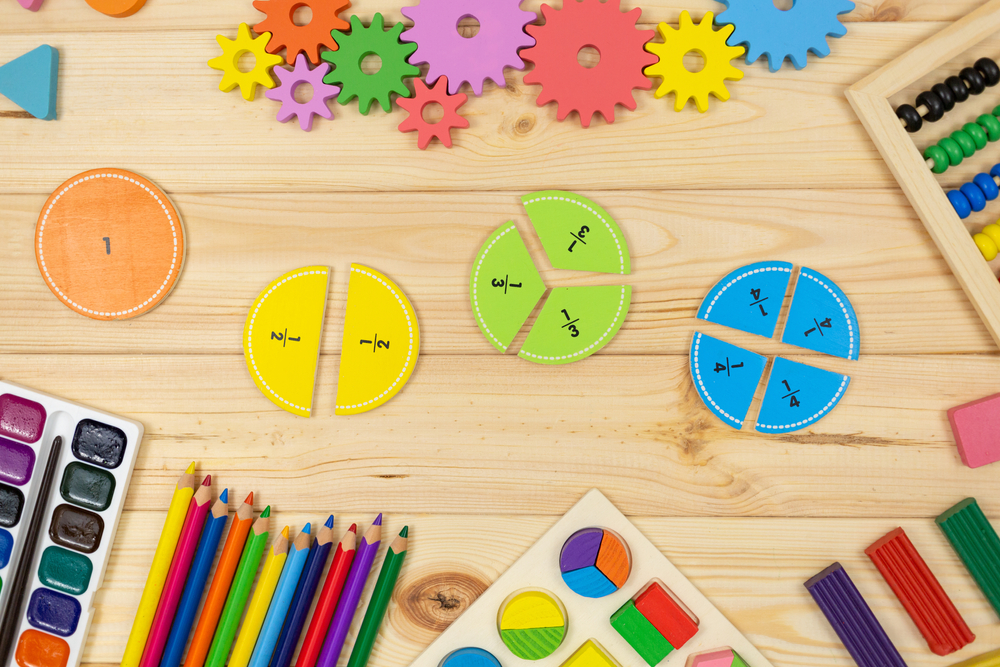Understanding prefixes Normal Worksheets for Ages 6-8
8 filtered results
-
From - To
Explore "Understanding Prefixes" Normal Worksheets, designed specifically for ages 6-8! These engaging and educational resources help young learners grasp the concept of prefixes, enhance vocabulary, and improve reading skills. Each worksheet features enjoyable activities that make learning fun, including word matching, sentence completion, and creative exercises. Perfect for classroom use or at-home practice, these worksheets are tailored to suit the developmental needs of children in this age group. Empower your child with the tools to excel in language arts and foster a love for learning with our expertly crafted educational materials. Get started today!
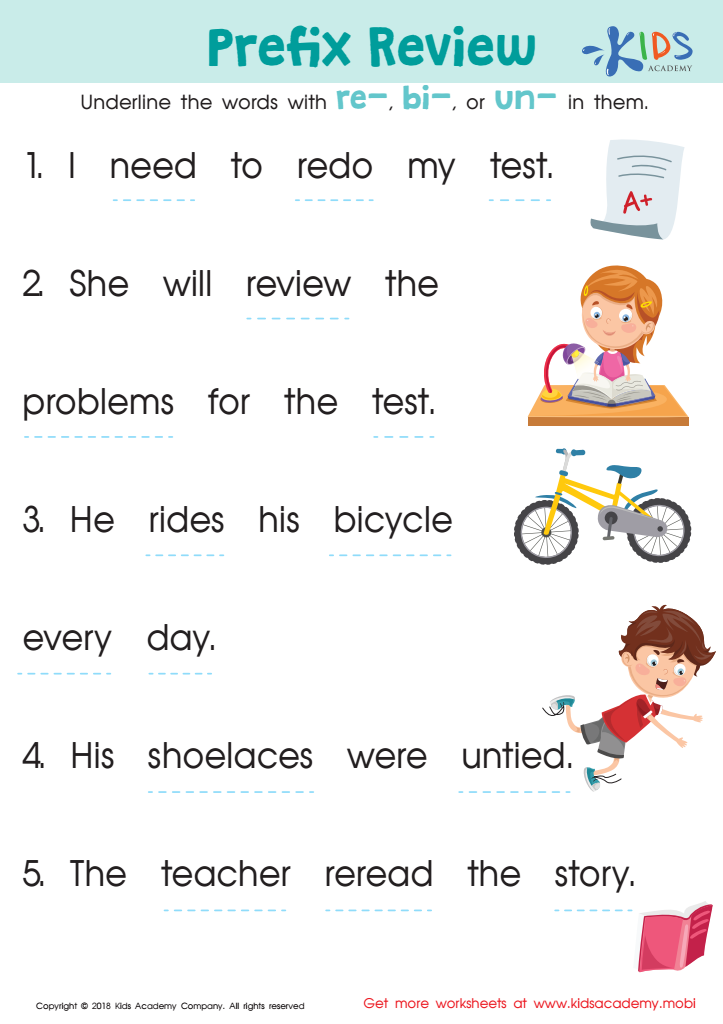

Prefix Review Worksheet
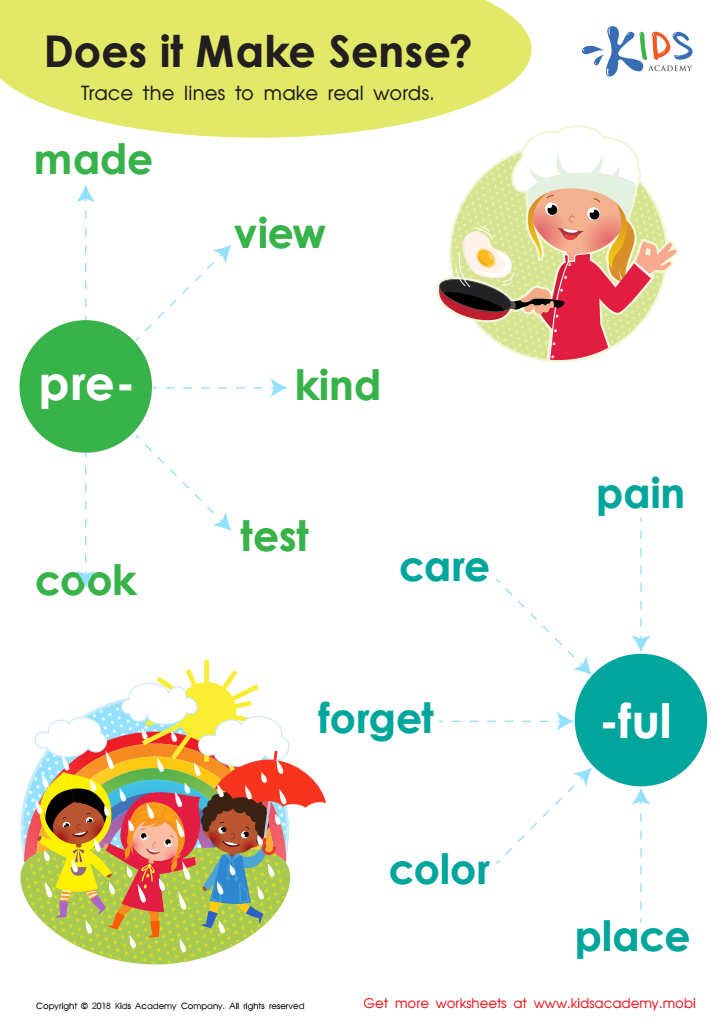

Prefix pre– and Suffix ful– Worksheet
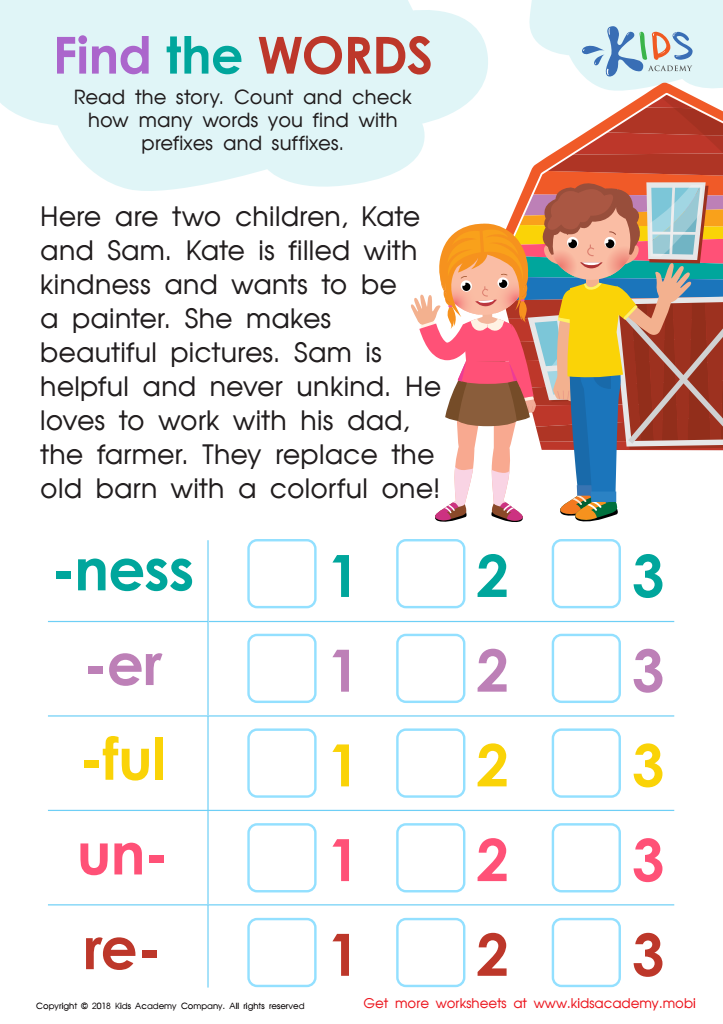

Prefix and Suffix Worksheet For Grade 3
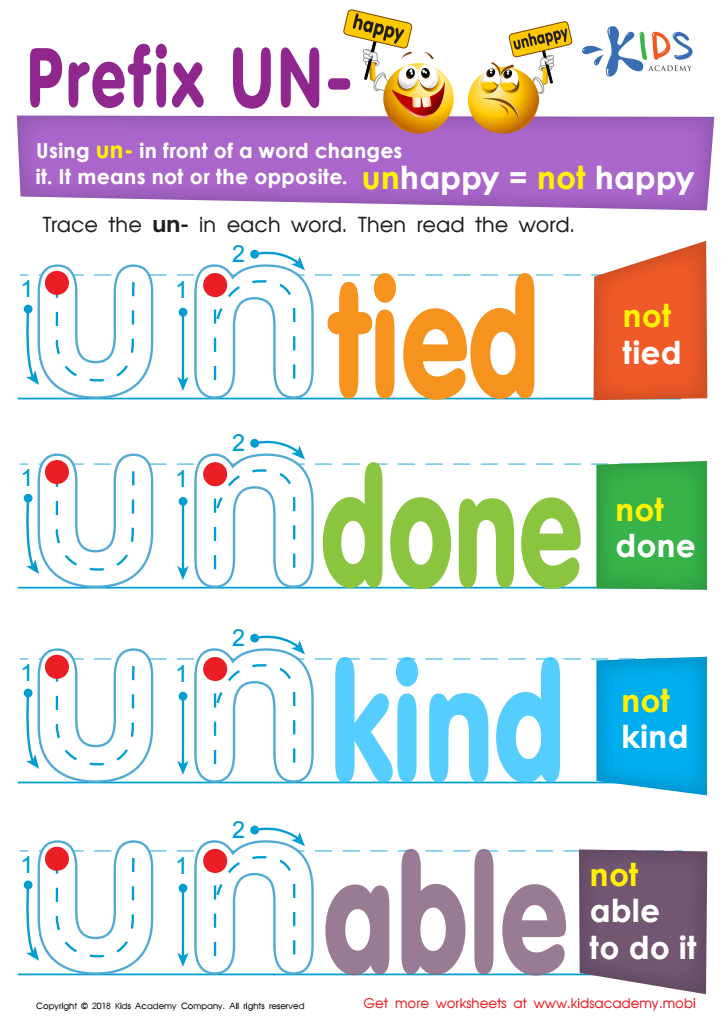

Prefix Un- Worksheet
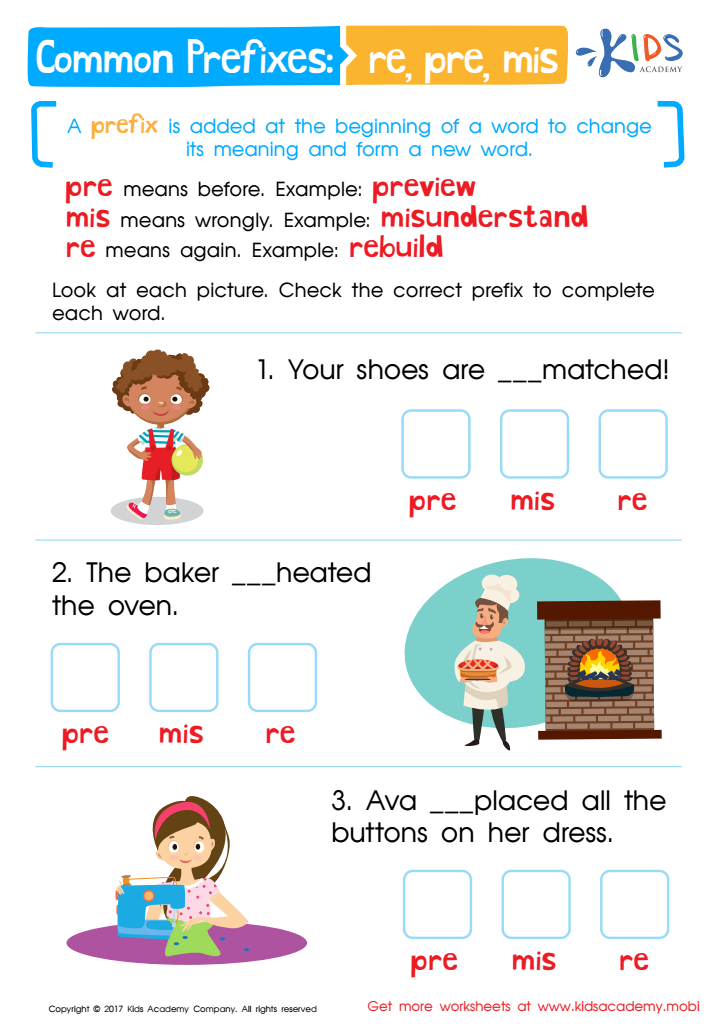

Common Prefixes Worksheet: RE, PRE, MIS
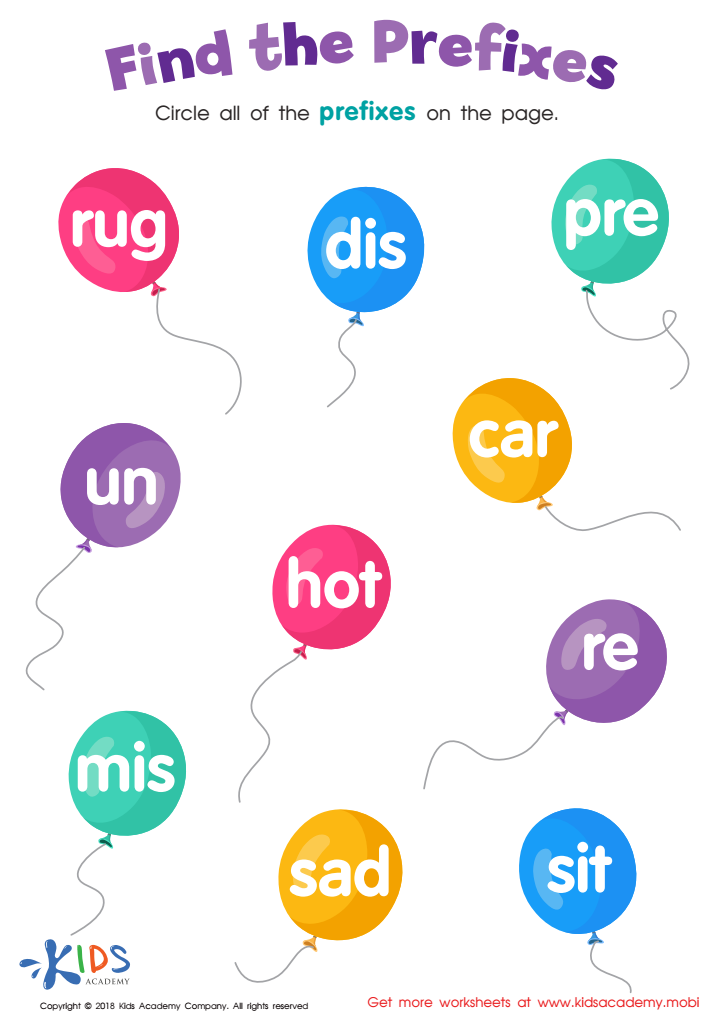

Reading: Find the Prefixes Worksheet
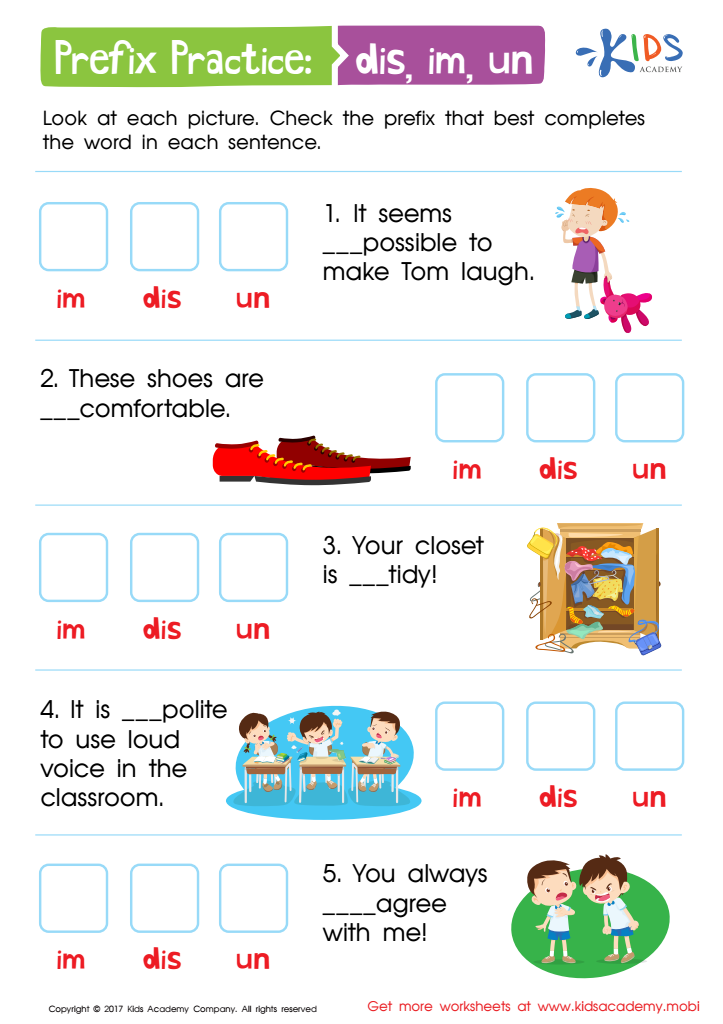

Prefix Practice Worksheet: DIS, IM, UM
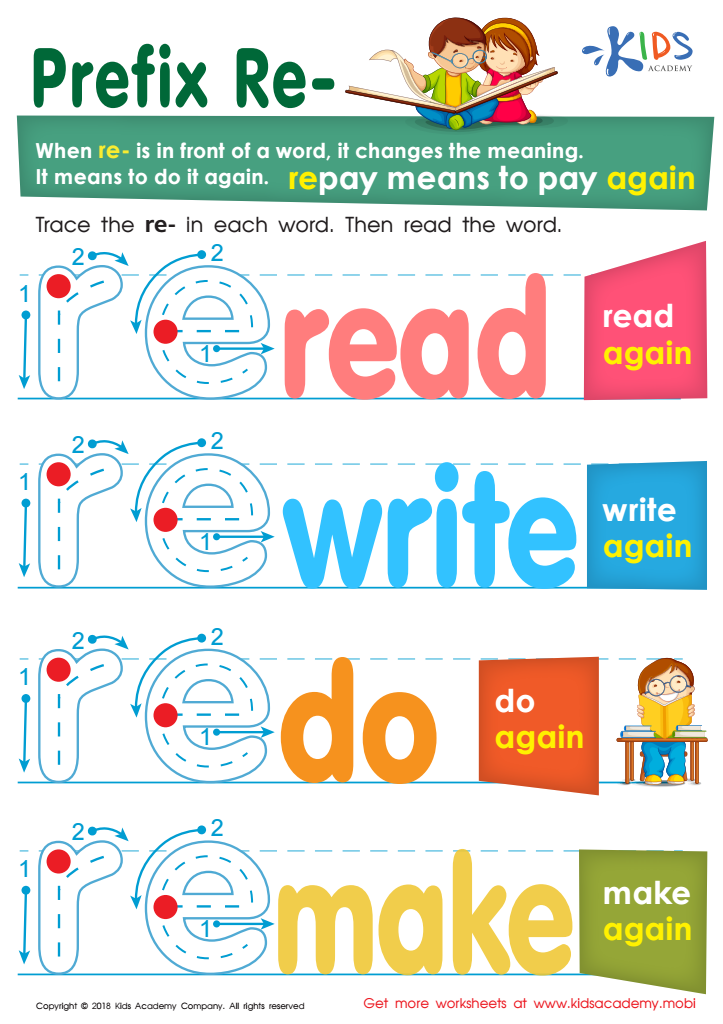

Prefix Re- Worksheet
Understanding prefixes is crucial for young children aged 6-8 because it significantly enhances their language and reading skills. Prefixes, which are groups of letters added to the beginning of words to alter their meaning, offer a foundational strategy for decoding unknown words. For instance, knowing that "un-" means "not" can help children understand that "unhappy" means "not happy." This contributes to the child's ability to independently figure out the meaning of new words, boosting their reading comprehension and vocabulary.
Moreover, early knowledge of prefixes supports spelling and word recognition. By familiarizing themselves with common prefixes, children can make educated guesses about how words are spelled even if they haven't encountered them before, improving their overall literacy.
From a cognitive development perspective, recognizing patterns in word formation strengthens critical thinking and problem-solving skills. It encourages children to think about language in a structured, analytical way. This early proficiency in processing language structures supports more advanced literacy tasks as they grow older.
Additionally, learning about prefixes can be fun and engaging, potentially fostering a love for reading and learning. Engaging activities like prefix matching games or challenges to create new words can make the learning process enjoyable and effective.
Overall, parents and teachers who prioritize understanding prefixes are setting children on a path to become confident, skilled readers and communicators.
 Assign to My Students
Assign to My Students








